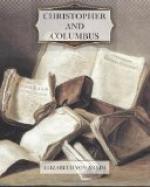She sat silent in the taxi, with Christopher equally silent beside her, both of them observing Mr. Twist through lowered eyelashes. Anna-Rose watched him with hurt and anxious eyes like a devoted dog who has been kicked without cause. Anna-Felicitas watched him in a more detached spirit. She had a real affection for him, but it was not, she was sure and rather regretted, an affection that would ever be likely to get the better of her reason. It wasn’t because he was so old, of course, she thought, for one could love the oldest people, beginning with that standard example of age, the liebe Gott; it was because she liked him so much.
How could one get sentimental over and love somebody one so thoroughly liked? The two things on reflection didn’t seem to combine well. She was sure, for instance, that Aunt Alice had loved Uncle Arthur, amazing as it seemed, but she was equally sure she hadn’t liked him. And look at the liebe Gott. One loves the liebe Gott, but it would be going too far, she thought, to say that one likes him.
These were the reflections of Anna-Felicitas in the taxi, as she observed through her eyelashes the object of Anna-Rose’s idealization. She envied Anna-Rose; for here she had been steadily expanding every day more and more like a flower under the influence of her own power of idealization. She used to sparkle and grow rosy like that for the coachman. Perhaps after all it didn’t much matter what you loved, so long as you loved immensely. It was, perhaps, thought Anna-Felicitas approaching this subject with some caution and diffidence, the quantity of one’s love that mattered rather than the quality of its object. Not that Mr. Twist wasn’t of the very first quality, except to look at; but what after all were faces? The coachman had been, as it were, nothing else but face, so handsome was he and so without any other recommendation. He couldn’t even drive; and her father had very soon kicked him out with the vigour and absence of hesitation peculiar to Junkers when it comes to kicking and Anna-Rose had wept all over her bread and butter at tea that day, and was understood to say that she knew at last what it must be like to be a widow.
Mr. Twist, for all that he was looking out of the taxi window with an angry and worried face, his attention irritably concentrated, so it seemed, on the objects passing in the road, very well knew he was being observed. He wouldn’t, however, allow his eye to be caught. He wasn’t going to become entangled at this juncture in argument with the Annas. He was hastily making up his mind, and there wasn’t much time to do it in. He had had no explanation with the twins since the manager’s visit to his room, and he didn’t want to have any. He had issued brief orders to them, told them to pack, declined to answer questions, and had got them safely into the taxi with a minimum waste of time and words. They were now on their way to the station to meet Mrs. Bilton. Her train from Los Angeles was not due till that evening at six. Never mind. The station was a secure place to deposit the twins and the baggage in till she came. He wished he could deposit the twins in the parcel-room as easily as he could their grips—neatly labelled, put away safely on a shelf till called for.




